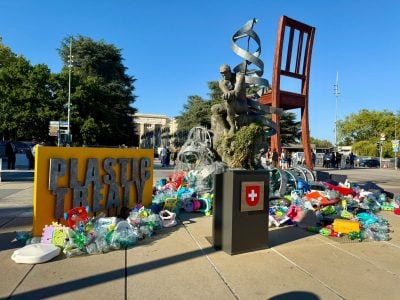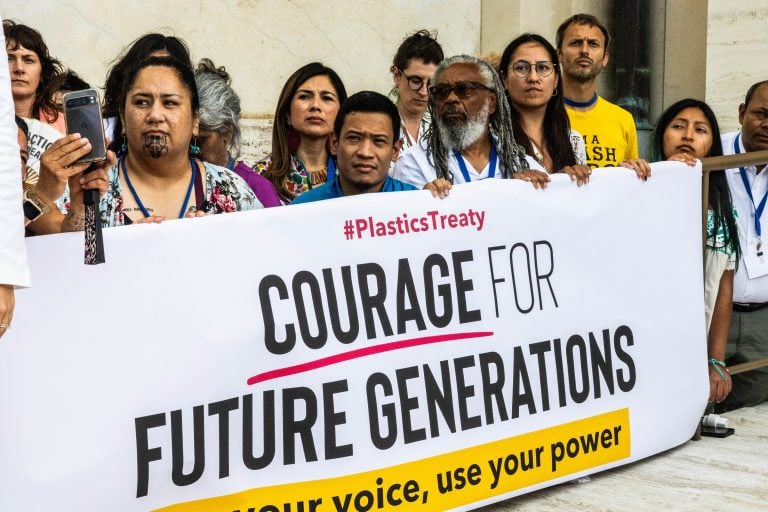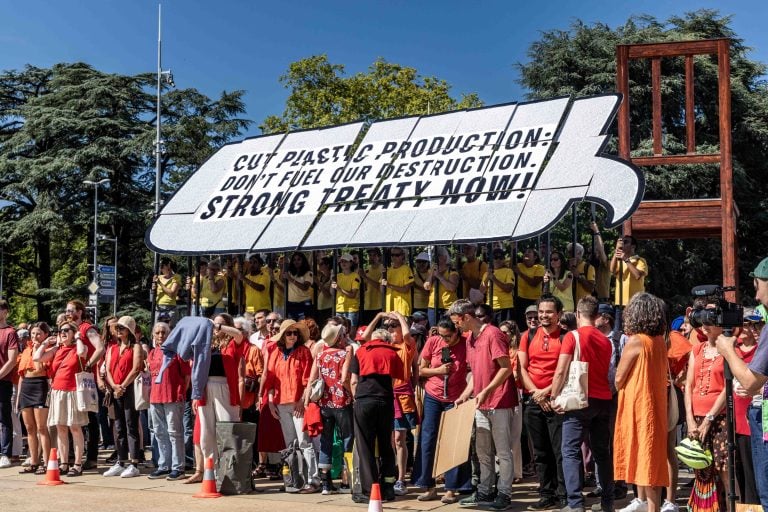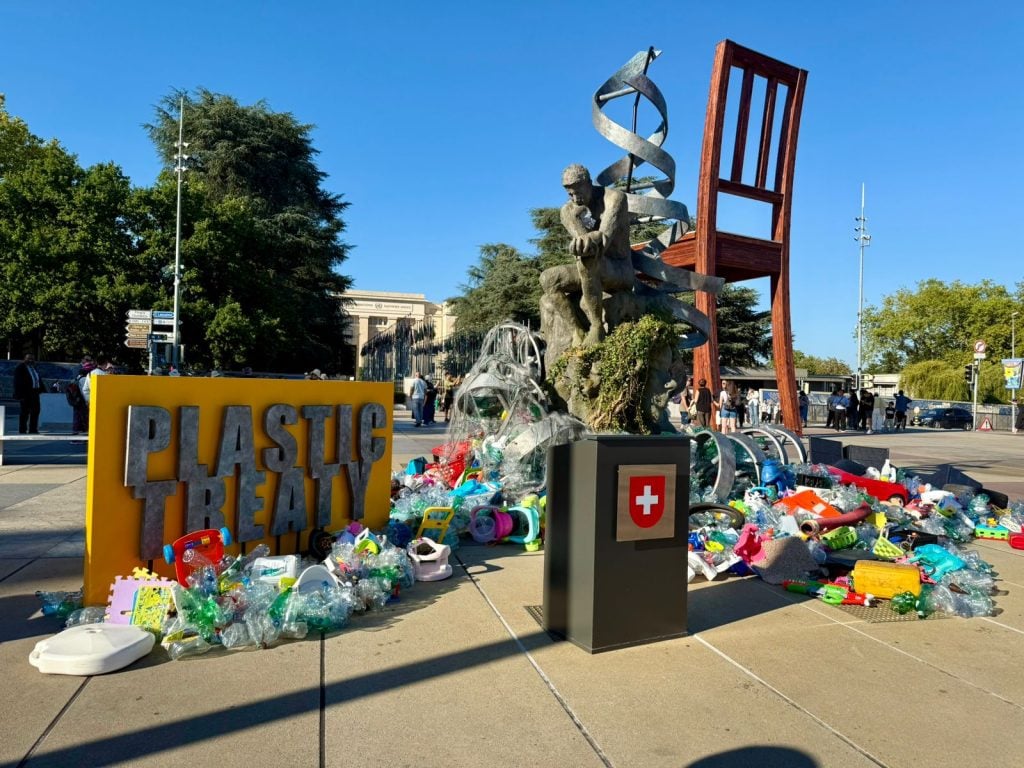It’s been five days since I returned from Geneva, and only now can I find the words. Every morning, my walk to the UN Palais in Geneva took me past Canadian artist Benjamin Von Wong’s sculpture “The Thinker’s Burden”. A reimagining of Rodin’s classic, but this thinker cradled a child while seated on Mother Earth, wrapped in DNA strands. Each day, I watched as more plastic waste was piled around it, the accumulating burden growing heavier. It was a powerful piece that mirrored what was happening inside those halls.
I came to INC 5.2 wearing multiple hats, representing the UNSW Centre for Sustainable Development Reform and Tangaroa Blue Foundation. But perhaps my most important credential wasn’t listed on my badge: I am based in Sri Lanka, where plastic pollution isn’t an abstract policy issue but a daily challenge to our health and environment.
The Weight of Multiple Lenses
For developing island nations like Sri Lanka, plastic pollution isn’t a future threat – it’s our present reality. I’ve walked beaches littered with nurdles from incidents like the X-Press Pearl maritime disaster, watched people burn plastic waste in their backyards, and inhaled the toxic fumes that drift through our neighbourhoods. For us in the Global South, this treaty isn’t about preventing some distant catastrophe. It’s about stopping the bleeding that’s already happening.

So when I entered those negotiation rooms with representatives from 183 countries and countless organisations, I carried more than just scientific and research knowledge. I carried the weight of communities suffocating under plastic imports, of children playing near burning open dumps, of marine life choking on our discarded conveniences.
What Happened (and Didn’t) in Geneva
Following the stalemate in Busan last November, Geneva was expected to deliver the treaty text that would finally address the full lifecycle of plastics, from production caps to waste management, and from toxic chemicals to financial mechanisms for implementation.
For ten intense days, negotiators grappled with fundamental questions: Should we focus only on waste, or tackle the entire plastic lifecycle? Should measures be binding or voluntary? Who pays for implementation in developing nations already drowning in plastic waste?
The discussions were fierce, insightful, and revelatory. I witnessed passionate pleas from island nations, calculated resistance from petrochemical interests, and everything in between. The majority rallied behind ambitious proposals. Over 100 countries backed Panama’s call for production limits, while 95 supported listing harmful chemicals.
But consensus remained out of reach. On August 15, after long sessions that stretched past midnight, the talks ended without agreement. No treaty. No binding text. Just a promise to reconvene at a future date.
The Complexity of the Challenge
Plastic is no longer just a material, or a product or waste stream. It’s become politics, economy, health, environment. It’s in our blood, our rain, our food
This complexity is why the negotiations matter. Every heated debate, every small country standing up to protect their environment, every youth delegate demanding better – these are creating change.
From my multiple lenses as a researcher, Global South resident, and environmental advocate, I see different truths:
- As a researcher, I see the value in rigorous science and robust data – in building frameworks grounded in evidence that can deliver results.
- As someone from the Global South, I see the urgency that negotiators from some wealthy nations might not feel: the communities already paying the price for unsustainable plastic production.
- As an advocate, I see the critical need to build awareness, shift behaviours, and mobilise communities – because policy alone will not solve this crisis without public engagement.
The Fight Continues
Clean-up activities by organisations like Tangaroa Blue Foundation remain vital. The policy discussions that seem to go nowhere are actually going somewhere – just slowly. The innovations in prevention, reduction, reuse, and recycling all matter. Every action at every scale is a thread in the net we’re weaving to catch this crisis.
We who live with plastic pollution’s consequences can’t afford to lose hope because negotiations stall. Our beaches will still need cleaning tomorrow. Our communities will still need protecting. Our children will still need a future worth inhabiting.
So no, INC 5.2 didn’t deliver my hopes wrapped in a binding treaty. But it delivered something else; proof that the world is finally grappling with plastic’s true weight. That many island nations, major economies, youth voices and Indigenous wisdom, scientists and waste pickers are all pulling in the same direction, even if some are pulling harder than others.
The treaty will come. And until then, we continue the work – in Geneva’s halls and Sri Lanka’s streets, in research papers and beach clean-ups, in hope and action.


Images courtesy of the Break Free From Plastic Coalition.


